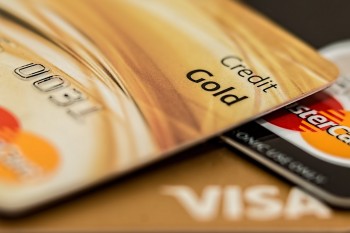Dealing with Debts after the Loss of a Loved One
The financial aftermath of death can be a complicated affair. Some people have plenty of time in which to prepare for the death, which means they may have met with attorneys, made financial arrangements, and settled everything in advance. Other people (particularly those who die suddenly or who are not in a financial position to cover the costs of a legal advisor) might leave behind a pile of assets, debts, medical bills, bank accounts, and credit cards for you to wade through.
Although a difficult task for anyone to go through after the death of a loved one, this can become especially burdensome when there are more debts than assets left behind. In most cases, the estate of the deceased (the combined value of all their possessions and financial accounts) can be sold off to pay any outstanding debts, after which anything left over is granted to the next of kin or other beneficiary. When there isn’t enough money in the estate to cover everything, then you may be personally held liable for those remaining debts.
Mortgages and Property Loans
Few people pay cash for a house, car, boat, acreage or other asset with a high value. Instead, they take out a mortgage or other loan, which they pay back over a pre-determined course of time. These debts are “secured” by a bank or other lender, which means they can repossess the items if payments aren’t made in a timely manner. This means that unless you take over the payments for the deceased or sell the item off and pay the remaining debt owed that way, the home or vehicle might be taken away from you. (The good news is that if this happens, the debt usually goes away, too.)
Unsecured Debts
Debts that are “unsecured” include things like credit cards, medical bills, overdue utility bills, back rent, and unpaid taxes. This means that lenders cannot show up at the deceased’s home and start carting away furniture to cover the unpaid debts; they can only make a claim through the estate to be paid what they are owed. When someone dies with a large amount of unsecured debt (and does not have enough in the estate to pay for it), the debts typically die with them.
The exceptions to this depend on where you live and whether or not the deceased was married. A spouse will usually be held liable for almost all this kind of debt, as will anyone who co-signed the loan or was a joint account holder.
Student Loans
With so many people taking out hundreds of thousands of dollars in education loans, it is no wonder that these tend to linger on even after someone dies. Whether or not these have to be repaid after death occurs depends on the type of loan taken out. A federal student loan is discharged upon the death of the student (or the death of the parent, if the parent took the loan out in their own name). If that loan has been re-financed with a private lender, however, it may linger on as unsecured debt.
The same is true if you have a co-signer, a spouse, or a private student loan. In these cases, the debt typically follows the same rules as unsecured debt, in that where you live, the amount you owe, and the lender itself will dictate whether or not the money has to be repaid.




